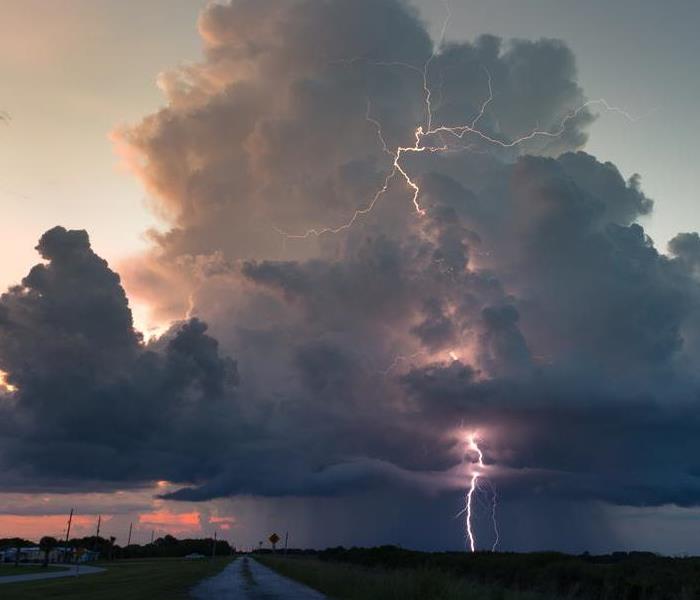Preparing Your Boat or RV for Storm Season: Storage and Safety Tips
9/11/2023 (Permalink)
Storm season can be a challenging time for boat and RV owners. Strong winds, heavy rains, and potential flooding pose a significant risk to these valuable investments. To ensure the safety and protection of your boat or RV, it's essential to take proactive measures before the storm hits. In this blog post, we will provide you with storage and safety tips to help you prepare for storm season.
Find Safe Storage
Finding suitable storage for your boat or RV is crucial during storm season. Consider the following options:
- Indoor storage: If available, storing your boat or RV indoors provides the highest level of protection against storms, including wind, rain, and potential debris damage.
- Covered storage: If indoor storage is not an option, look for covered storage facilities to protect your vehicle from direct exposure to the elements.
- Secure your property: If storing at home, choose a location away from trees, power lines, or any other potential hazards. Use sturdy tie-down straps and anchors to secure your boat or RV.
Perform Maintenance and Inspections
Before storing your boat or RV for storm season, it's essential to conduct thorough maintenance and inspections:
- Check for leaks: Inspect your vehicle's roof, windows, doors, and any other potential areas where water could enter. Repair any leaks promptly.
- Secure loose items: Remove any loose items inside your boat or RV that could become projectiles during strong winds.
- Trim trees and branches: If storing at home, ensure trees near the storage area are properly trimmed to minimize the risk of falling limbs or debris.
- Test the security system: If your boat or RV has a security system, ensure it is in proper working condition before storing.
Prepare for Power Outages
During severe storms, power outages are common. Taking the following steps will help you deal with a potential power loss:
- Charge batteries: Make sure your boat's battery, RV generator, and any backup power sources are fully charged before the storm.
- Stock up on supplies: Have enough food, drinking water, flashlights, and batteries to last through an extended power outage.
- Consider a backup generator: If you anticipate prolonged power outages, consider investing in a reliable backup generator to power essential appliances and systems.
Review Insurance Coverage
Review your boat or RV insurance policy to ensure you have adequate coverage for storm-related damages:
- Verify coverage limits: Check if your policy covers weather-related damages, including wind, hail, or flooding. If not, consider adding additional coverage.
- Document your possessions: Take photos or videos of your boat or RV, both inside and out, to document its condition before the storm. This documentation will be valuable if you need to file an insurance claim later.
Stay Informed and Follow Safety Guidelines
Stay updated with weather forecasts and follow safety guidelines provided by local authorities. Sign up for weather alerts, register for local weather alerts through mobile apps or email notifications. If your area is at risk of severe storms or flooding, familiarize yourself with evacuation plans and follow the advice of local authorities. Secure loose property. If at all possible , make it possible to store your boat or RV indoors, ensure all loose items are properly secured or removed before the storm arrives. For boat owners, monitor water levels in marinas or docking areas and follow guidance from harbor masters or marina operators.
Preparing your boat or RV for storm season requires careful planning and proactive measures. By finding safe storage, performing maintenance, preparing for power outages, reviewing insurance coverage, and staying informed, you can mitigate potential risks and safeguard your valuable investments. Remember, the safety of yourself and others should always be the top priority. Stay alert, follow safety guidelines, and be prepared for whatever storm season may bring.






 24/7 Emergency Service
24/7 Emergency Service
